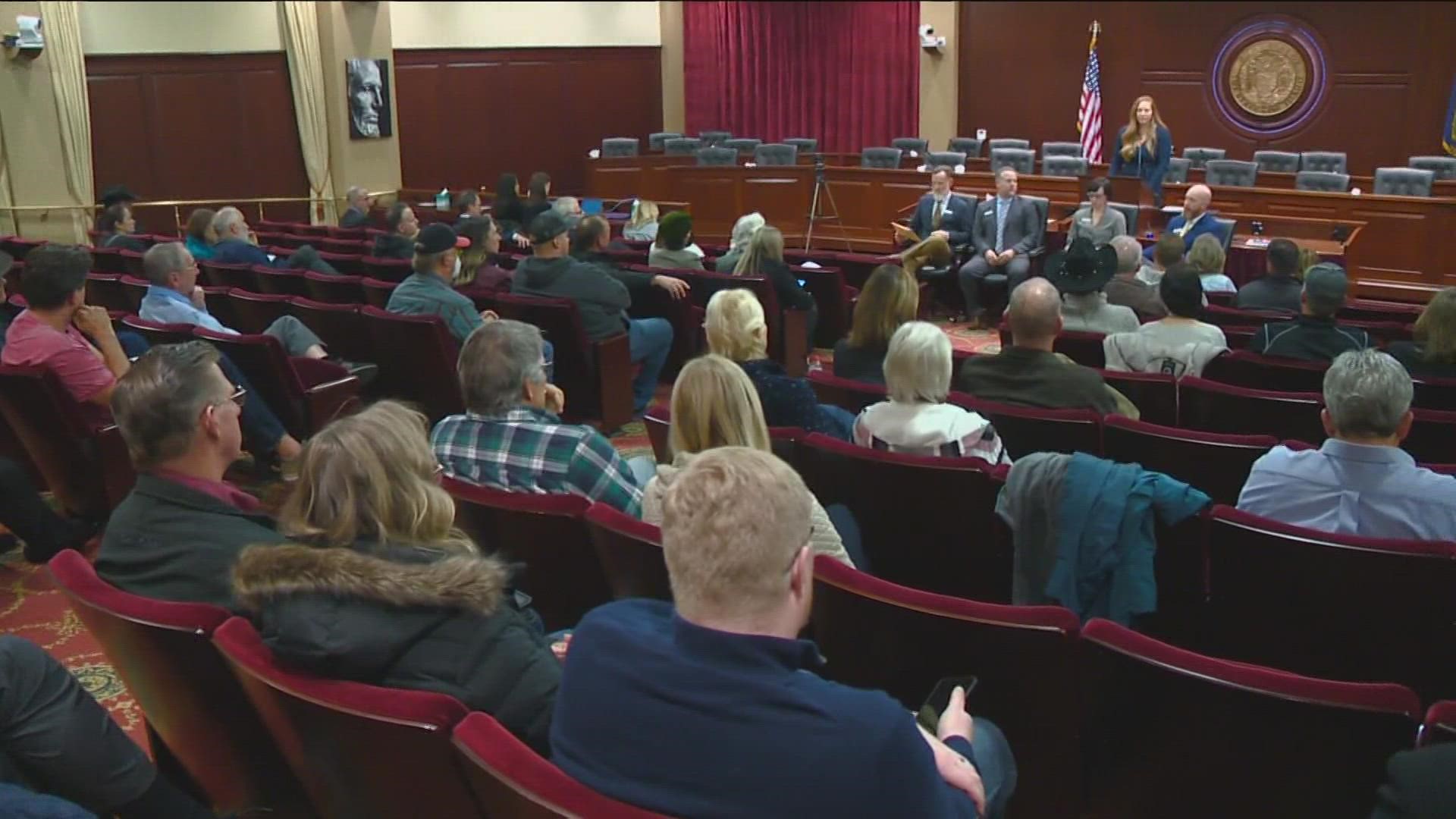BOISE, Idaho — During a town hall on Jan. 12, a group of Republican Idaho lawmakers presented a piece of school-choice legislation they are working on called the "Freedom in Education Savings Accounts Program."
"We want schools to have accountability … and it's not our goal to destroy or defund them, but to make them better, all schools better for our children," Sen. Ben Toews of Coeur d'Alene said.
The draft legislation outlines an education savings account (ESA) program in which families could use state funding towards the educational needs of their children. The account funds could be used for things like technology needs, public school fees, tutoring, or private school tuition and fees.
Sen. Tammy Nichols (R-Middleton) said all those options are what makes an education savings account different from traditional school-choice voucher programs. She estimated 1%, or about 3,200 Idaho students, would use the program.
Each of those students would receive a nearly $6,000 scholarship.
"This gives parents flexibility and control to access learning services that work best for their children," Nichols said.
However, opponents of the draft legislation say similar legislation from other states ended up being more expensive than the initial price tag. They also say it would take much-needed money from Idaho's public schools.
"Just like traditional vouchers, ESAs siphon dollars out of our public schools in order to fund private school tuition," said Luke Mayville, Reclaim Idaho co-founder.
The Republican lawmakers are asking for $20 million to get the program started. It's modeled after Arizona's education savings plan. Mayville said that plan cost the people of Arizona a lot of money.
"The voucher proponents in Arizona predicted that it would cost about $30 million," Mayville said. "It ended up costing over 10 times that amount."
According to Forbes, there are big problems with educational savings accounts. ESA's cost taxpayers' money, there is no accountability or oversight, educational vendors are often unvetted and it takes money from public schools.
The Idaho draft legislation outlines that if a family chooses to use their money to send their child to a private school, the original public school that the child was slated to go to would receive 20% of the funding designated to that student.
Mayville said that is not enough.
Additionally, Rep. Soñia Galaviz (D-Boise) said there is a constitutionality issue.
"Our Idaho State Constitution is quite clear on what our job is to provide for schools," Galaviz said. "It says Article 9, Section 1, 'it is the duty of the legislature of Idaho to establish and maintain a general uniform thorough system of public free common schools.'"
She said providing vouchers or taking money from the general fund, in particularly in rural districts, would be devastating to school budgets. Galaviz furthered that public school budgets are already spread thin and are sometimes not able to provide for and meet all of the needs of students.
Sen. Scott Herndon (R-Sagle) does not agree. He said an education savings account gives families of all backgrounds, especially those in rural areas, more opportunities.
"The only people who have school choice in rural areas are people who are substantially well off, compared to the average family living in my district," Herndon said.
Herndon also addressed student performance and whether putting more money into education increases student success.
"It doesn't matter if you spent eight times more like New York or five times more like in California, the results don't really change. What needs to change is the options available," Herndon said.
Galaviz disagrees. She said private schools do not have the same kind of accountability as public schools and that "there would be no say or way to address how private schools are meeting the needs of students."
Watch more Local News:
See the latest news from around the Treasure Valley and the Gem State in our YouTube playlist:

